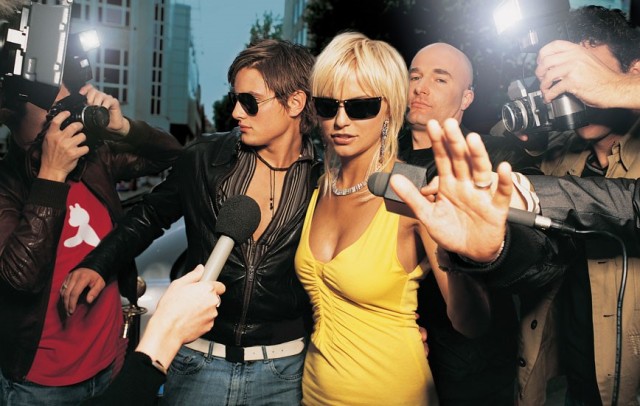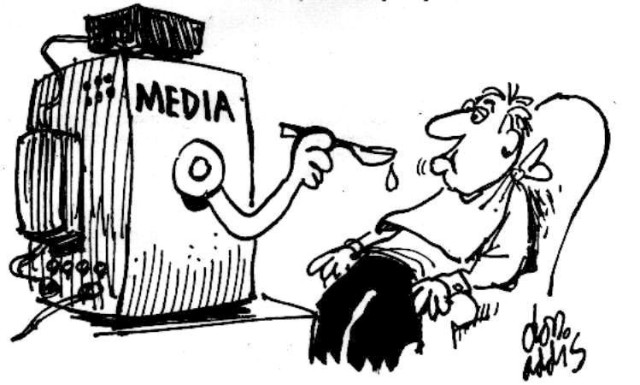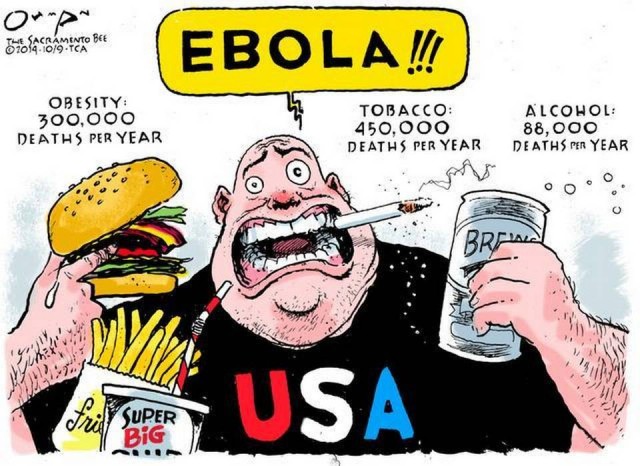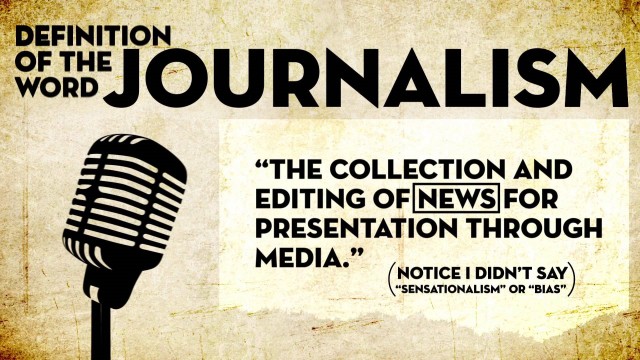“If people in the media cannot decide whether they are in the business of reporting news or manufacturing propaganda, it is all the more important that the public understand that difference, and choose their news sources accordingly.” – Thomas Sowell, Economist
 Source: Google Images
Source: Google Images
The great media, the fourth pillar of democracy, stands for almost everything that is just in our society. Objective opinions, transparency, freedom of expression and the victory of truth over power.
Over power.
What it actually is, is overpowering. National dailies with screaming headlines, news channels with screaming anchors, the duty of building opinions has now translated into the business of manufacturing them.

Perhaps it is a problem with the Indian Subcontinent. Do Indian people only appreciate melodrama, sensationalism or a loud display of emotions? Or is it a one-sided perception that the media has. Ultimately, if it’s working like a business, in some manner it has to fulfill the desires of the people.
So which party is truly at fault?
Sensational reporting can, at times ensure that a large number of people take note of the incident or issue, which helps is gathering public support. Overstating an issue is undoubtedly going to get a lot of attention, but the support raised and emotions fanned should be on correct factual ground. Not on situations blown out of proportion.
The lives of the common are an open invitation for exploitation, but it’s truly the celebrities who suffer from it. The media is there, it’s watching, just waiting to pounce on the next slip-up. While some may argue that this helps keep the elite in line, as even they are in the business of influencing the masses, however how many people out there actually need to know half the things that are reported? The lives of celebrities are displayed as open books in our supplement newspapers.
Whether it’s a divorce, or a new relationship, plastic surgery or even a new diet everything, unfortunately is broadcasted.

Media coverage on sensitive situations elicits a public response, where more often than not people sympathize with an individual’s tragedy instead of the situation at hand. Thus, the process of opinion development that occurs on the side of the beneficiaries i.e the viewers, is incomplete, or rather imbalanced.
The media plays an influential role in shaping our thoughts and perceptions about the society.
A world without media is unimaginable as media is the connection between the people and the news. Irresponsible use of this medium leads to development of mindsets which are not our own but are created by biased opinions of the person reporting the event.

Media today thrives on these emotions, on the headlines which may be crude but are catchy and appealing. The main reason behind this is that there is not a sense of responsibility prevailing while reporting of events. Reporters need to judge the situation, not blow it out of proportion and point fingers without confirming facts. For example, The U.S. Centers for Disease Control and Prevention has said that Ebola “does not pose a significant risk to the United States” So far, the disease has claimed 2000 people in the US. While that is tragic, it is the same number that dies from malaria every single day.

However, in recent times, sensationalizing cases of increasing crimes against women, feminism and women empowerment, has helped increase public support towards the issue, but at the heart of this resonates the question: Are the methods used to do this morally correct? Media giants, backed by bigger corporate giants tend to believe that what matters is catching eyeballs and soaring TRPs.
“If it does not get good ratings, it is not good content. It is all about viewers. That connect has to be there. If not, it cannot be monetised.” Bhaskar Das, Zee Media group,CEO.

As Spider-man has taught us, that “with great power comes great responsibility”, media as a powerful medium needs to be used with caution and care. It has the power to change and initiate mass movements, while at the same time it has the power to degrade individuals and create negative mindsets. It is not only the responsibility of the media to report on situations in an objective and direct manner but it is also our responsibility that as informed citizens we make correct, balanced decisions and build our thought process.
By Manvika Athwani


































